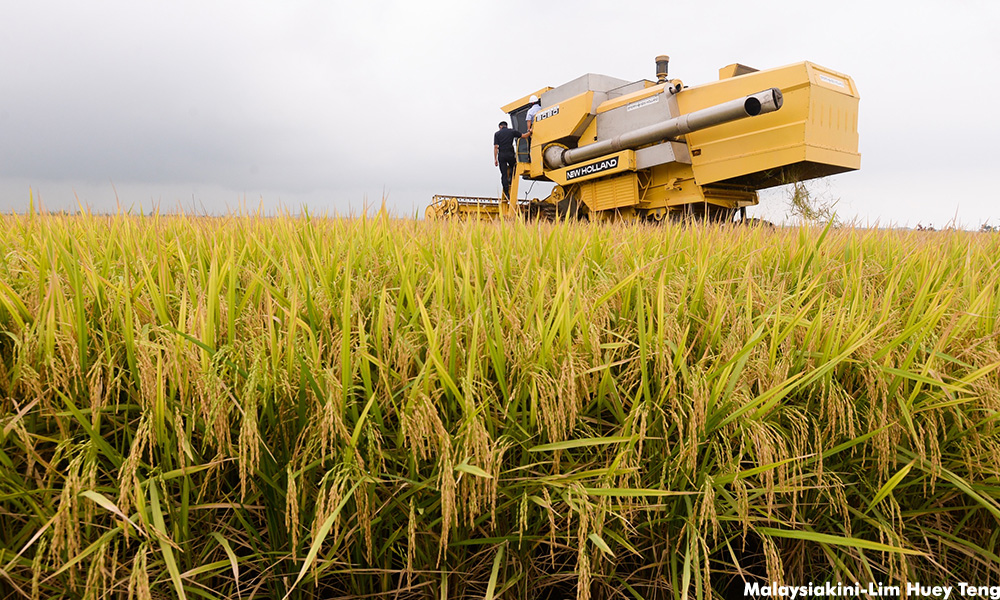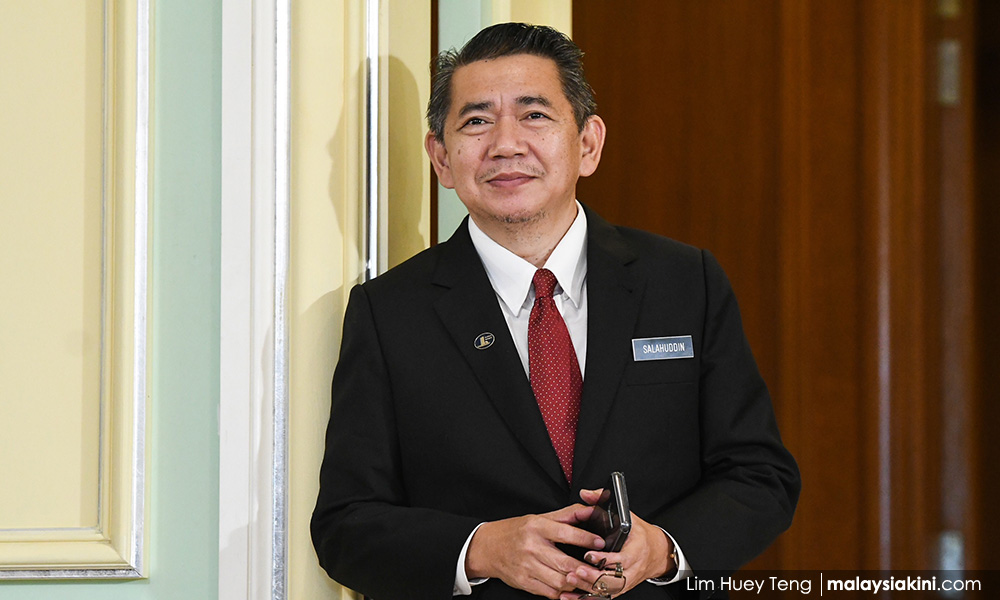
Pakatan Harapan's Agriculture Ministry has been applauded for doing what many successive BN governments have failed to do – breaking up Padiberas Nasional Bhd's (Bernas) monopoly of rice imports.
It took Agriculture Minister Salahuddin Ayub just two weeks on the job to end years of the company making huge profits for its shareholders at the expense of rice farmers and consumers, said Bukit Tengah assemblyperson Gooi Hsiao-Leung.
Gooi, who had previously campaigned against Bernas, said that removing the company’s previously BN-assured import monopoly is the fulfilment of one of Pakatan Harapan’s election manifesto promises – guaranteeing people's basic food needs and taking care of the welfare of farmers.
Nevertheless, he stressed that many rice farmers today continue to live in poverty and grapple with increased production costs.
Many of the small- to medium-sized rice mills that once dotted the landscape of rice fields across country, he added, have all but disappeared.

"I hope the Agriculture Minister will seriously look into calls long made to re-establish the National Paddy and Rice Marketing Board (LPN) as part of the much-needed overhaul and reform of the national rice industry," Gooi said in a statement today.
"In this regard, I urge the minister to engage directly with rice farmers, millers and other stakeholders to get their inputs on how to revitalise and reinvigorate the local rice industry in our ‘Malaysia Baru’ to uplift the welfare and livelihood of our rice farmers who play such a vital role in food security by producing our country’s most important staple food," he added.
Falling on deaf ears
After announcing the cabinet decision to terminate Bernas’ monopoly, Salahuddin said that a working paper would be drafted with feedback from both the ministry and other stakeholders before being submitted to the government for further action.

Gooi applauded the move, and said that rice farmers, millers and other stakeholders have long had their pleas to review the company’s role in regulating the national rice industry fall on deaf ears.
"In particular, they pointed to the government for allowing Bernas to be become wholly privatised and be exempt from paying billions on import duty for rice, when such tax could have been collected and channelled back to aid poor rice farmers.
"The BN government’s practice for allowing a privately owned and controlled company to profit from not paying import duty on rice is a stark contrast to countries such as Japan and Korea, which impose high import tariffs on rice of more than 200 percent to protect their local rice industry," he said.
‘Misplaced overreliance’
According to Gooi, the previous BN administration had "misplaced undue overreliance" on Bernas to regulate the rice industry, as well as manage the country’s rice stockpile and government subsidies.
He claimed that this led to billions of ringgit being lost as a result of the ministry’s neglect, mismanagement and abuse of national rice subsidies, such as the ST15 programme which has since been scrapped.
"As a result of the previous government’s neglect to promote the local rice industry, opting instead to rely on Bernas’s rice imports, previous national targets set by the government over the last two decades to achieve self-sufficiency levels for rice production in the country have never been realised," he said. -Mkini



No comments:
Post a Comment
Note: Only a member of this blog may post a comment.